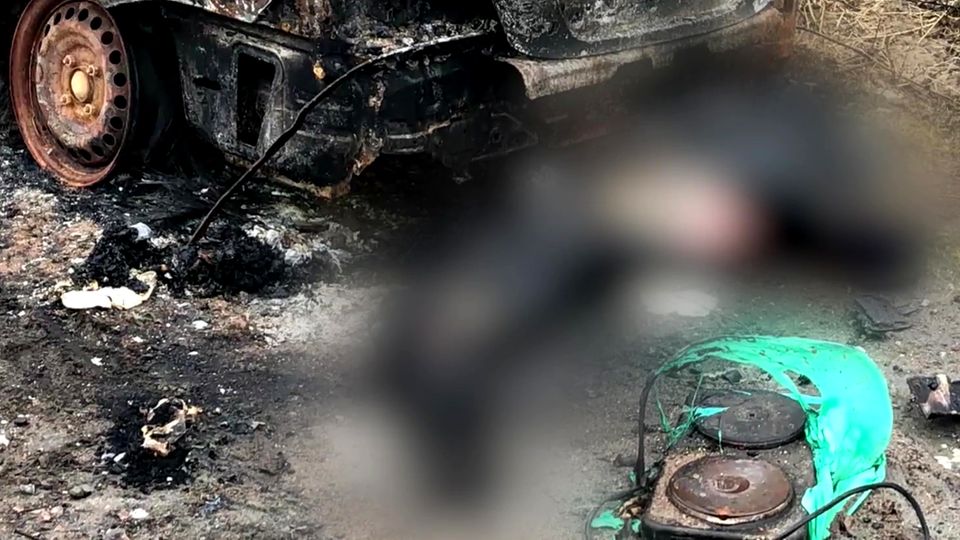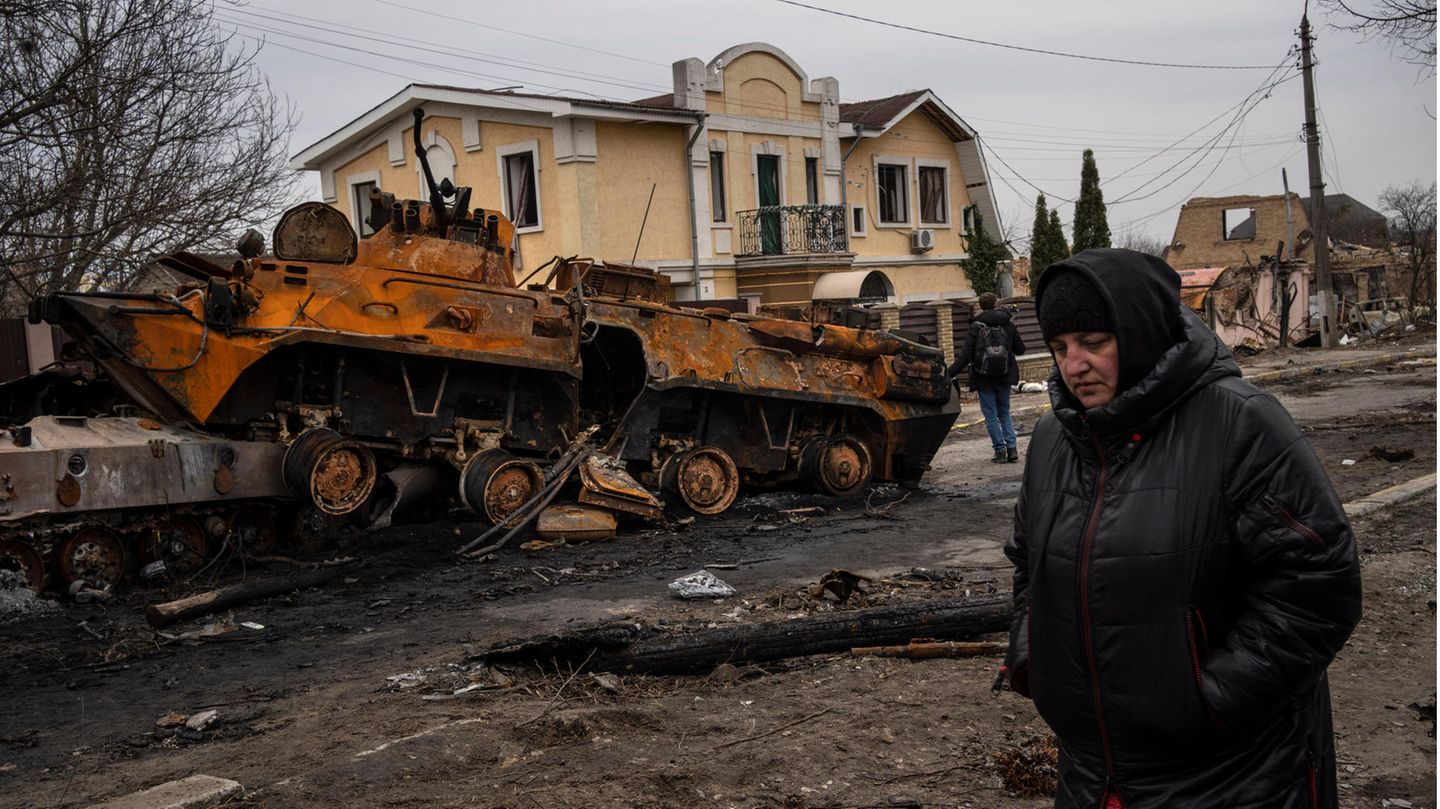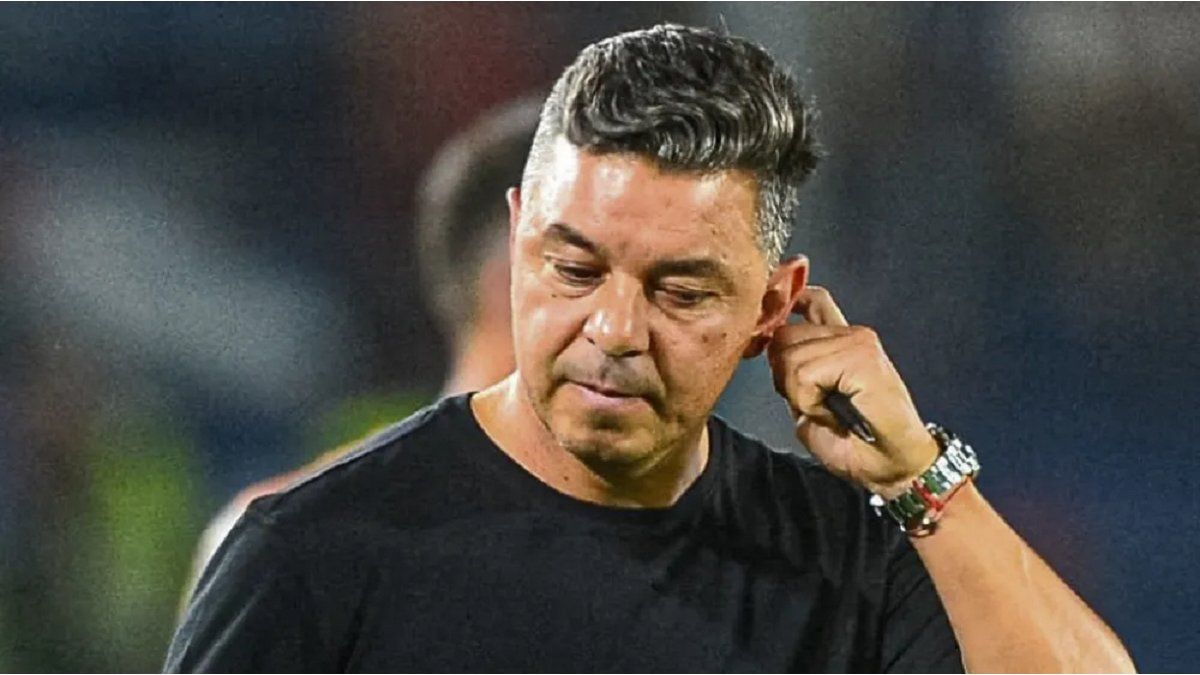The alleged war crimes in the Ukrainian city of Bucha have shocked the world. A resident of the city describes the weeks of the siege. She tells of brutal, older soldiers who are said to have shot people.
A few weeks after Russian troops captured the Ukrainian city of Bucha, Olena began to feel a change for the worse. Older, tougher soldiers came into the city and spread fear, the 43-year-old city resident recalls. “Right in front of my eyes, they shot a man who wanted to go to a supermarket to go shopping,” says Olena, who is careful not to give her last name.
Bucha was captured by Russian units on February 27, in the first days of the war, and they controlled it for a month. After the bombing stopped, Ukrainian units were able to recapture the city last Thursday. They found numerous dead people in civilian clothes in the streets.
“They were brutal. They mistreated everyone”
Olena spent March with her seven- and nine-year-old children in the basement of a four-story house. Without electricity, together with other residents. “There was no Ukrainian army in the city, only the territorial defense consisting of mostly unarmed guards from local companies. And they fled,” she says.
At first, mostly young Russian soldiers came, says Olena. “Then, two weeks later, others came, older ones.” They were older than 40. “They were brutal. They abused everyone. And then the massacres began,” adds Olena, pausing thoughtfully, scowling.
Russia on Monday “categorically” denied all allegations related to the killing of civilians.
Eyewitness: Only women were allowed to leave the house
According to Olena, the older soldiers were “very well equipped” and wore black and dark green uniforms – unlike the standard Russian army uniform. “There were some good guys among the Russian soldiers, and there were some very rough men, especially from the FSB,” the Russian secret service, Olena says.
She went to the soldiers to ask them what they should feed their children, “and they brought us food rations and food,” she says. “It was they who told us that the FSB had forbidden us to walk around, that they were very violent special forces,” she says. “It was Russians who said that about Russians.”
Only women were allowed to fetch water and food. The men should have stayed inside. “Our neighbors went out at 5 p.m. to take out the garbage. Two men and one woman. One of the men had served in the army. They didn’t come back,” reports Olena. A woman from the house later found her in the yard of a house when she wanted to collect wood. “The bodies lay in a pool of blood with gunshot wounds,” says Olena.
Corpses and wrecks of troop vehicles in Bucha
“When the FSB agents arrived, they asked why I didn’t leave town. I told them that I’ve lived here for 43 years and had a peaceful life. So why should I leave?” The FSB agents then called her a “traitor”.
On Saturday, AFP reporters saw 22 dead people in civilian clothes on a single street in the city. A male corpse had his hands tied behind his back.
According to the Attorney General’s Office, the bodies of five men were found in the basement of a children’s sanatorium in Bucha on Monday. According to the mayor of Bucha, 280 people were buried by Ukrainians in mass graves, and the number of dead is increasing.

A street in the city is littered with around 20 wrecks of troop vehicles, armored vehicles, some of which are already beginning to rust. The column was believed to have been hit by Ukrainian bombing raids as it entered the city in late February.
Kremlin spokesman Dmitry Peskov said on Monday that Russian defense experts had found “signs of fake video and other forgeries” in the videos distributed by the Ukrainian authorities.
Source: Stern
David William is a talented author who has made a name for himself in the world of writing. He is a professional author who writes on a wide range of topics, from general interest to opinion news. David is currently working as a writer at 24 hours worlds where he brings his unique perspective and in-depth research to his articles, making them both informative and engaging.




